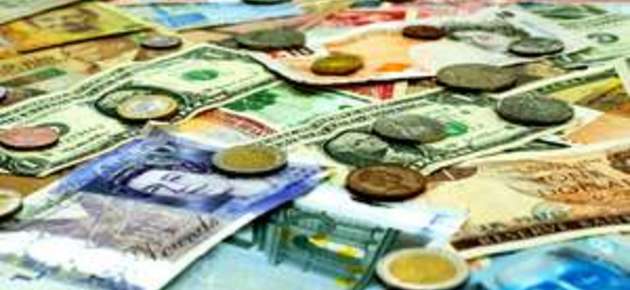Dissertation: Chasing high interest rates currencies offers no free lunch

“Currency trading is a big deal in the world of global investments," says Orlov, "as volume of transactions in the global currency market on some days reaches four trillion U.S. dollars, about 12 times more than that of all the world’s stock markets combined.” His dissertation provides new insights into the nature of the foreign exchange market anomalies.

The simplest way to profit from currency trading is to use the currency of a country that has low interest rate and invest in a currency of high interest rate country.
“In theory this should not be possible. Economists would tell you that it is irrelevant where you invest because changes in spot exchange rate will anyway exactly offset your gains from difference in interest rates between two countries. However, this strategy, also known as carry trade, has been a profitable way to invest for decades.”
In his dissertation, Orlov argues that carry trade profitability does not come at no costs for investors.
Carry trade profitability depends on a country's political risk
“I have found that chasing high interest rates currencies offers no free lunch. In other words, currency carry trades are risky. I show that sovereign solvency risk lies at heart of the profitability of carry trades,” he explains.
According to Orlov, high interest rate currencies expose you to more risk, as they deliver low carry trade returns at times of high solvency risk, whereas low interest currencies provide a hedge against the risk. Orlov’s research shows that solvency risk factor alone can explain most of the return variation across currencies.
Further, his dissertation explores the risk profile of individual currency carry trades and finds that carry trade profitability depends on a country’s political risk.
“Political risk effect originates as a component of government actions and is more pronounced in emerging economies and in countries with high interest rates. This finding lends additional supports for the risk-based view on currency trading and warns currency traders of potentially serious risk,” Orlov concludes.
Cross-market links should not be neglected
Orlov’s study examines the effect of equity market conditions on returns of currency momentum and carry trade anomalies. Momentum is a strategy where you go long in past winner and short past losers.
“Results show that equity market illiquidity explains the evolution of currency momentum strategy payoffs, but not carry trade. I show that currency momentum delivers low returns following months of high equity market illiquidity,” says Orlov, “these findings indicate that one should not neglect the cross-market links between currency anomalies on the one hand and stock market conditions on the other.”
Finally, Orlov encourages investors to take into account the temporal structure of correlations between currencies when bundling them up into portfolios as doing so brings significant diversification benefits and some exploitable patterns in exchange rate movements.
Further information
Vitaly Orlov, tel. +358 41 700 8227, vitaly.orlov(at)uwasa.fi
Orlov, Vitaly (2016). Essays on Currency Anomalies. Acta Wasaensia 366.
Public Defense
The public examination of M.Sc. Vitaly Orlov’s doctoral dissertation “Essays on Currency Anomalies” will be held on Thursday 8 December at 12 o´clock in auditorium Nissi (K218, Tritonia). The field of dissertation is finance.
Professor Johan Knif (Hanken School of Economics) will act as opponent and Professor Janne Äijö as custos. The examination will be held in English.